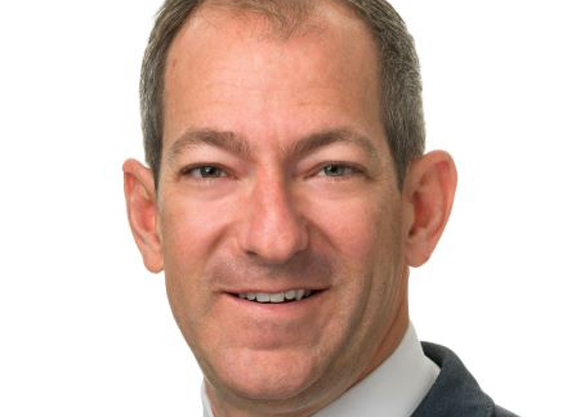By Craig Bernick
Editor's Note: the following is part of the Thoroughbred Idea Foundation's weekly 'Free-Data Friday' series.
#FreeDataFriday–VOLUME 17: DATA, WAGERING AND THE FUTURE OF RACING
At some point the horse racing industry–owners, racetracks and industry organizations–stopped caring about gambling on live horse racing.
If gambling on horse racing was any sort of priority, distributing free data would be one of the first things the industry would do. Get data into the hands of customers.
Despite their massive contribution to racing, horse owners are required to relinquish any rights to data, even for their own horses, from the moment a horse is registered with The Jockey Club, an organization which remains insulated from the sport's wagering declines.
Without question, horse owners have enjoyed the benefits of expanded gambling in many states via purse supplements. They have grown in the form of slot parlors, historical horse racing machines and full-fledged casinos tied to tracks. As great as these benefits are to today's horse owner, they have warped the sport. Actual gambling on racing is almost inconsequential to running racing in states that have such supplements.
The latest supplement to emerge is a tax redirection in Texas which will benefit prize money in a state that has, to this point, not legalized expanded gaming. While welcoming an increase in prize money, the long-term benefits of this might be rather limited.
Big purses should be a positive for racing, they should boost ownership and trickle down into boosting the breeding business too. Purses should spur participation–but so far, that hasn't happened.
There are consequences to mindsets that suggest the sport should pursue or lean into these sorts of supplements. A failure to care about horse racing as a gambling game is quite possibly the most significant misstep in an industry that has made many over the last two decades. Instead of pursuing better deals from elements that aren't directly related to racing, the sport should focus on making its own product as attractive as possible to its own customers. Sustainability should come from within.
Two of this year's Eclipse Award finalists for champion owner–Gary Barber and Seth Klarman–were fans and gamblers of racing before they ever purchased a horse. The sundresses and bowties that dominate industry marketing efforts haven't improved the metrics that actually matter. Our lack of focus on wagering may not be losing us just a generation of bettors, but future owners too.
Racetracks are now mostly owned by gaming companies whose aim is to maximize shareholder value. And they should! To ask or expect any different is foolish and unrealistic.
Since January 1, 2000, the share price of Churchill Downs Incorporated has increased from $7.67 to roughly $140 today for a market cap of $5.6 billion. In that time Churchill has shifted from a horse racing company to a diversified gaming corporation. Surely, they have accomplished their mission on behalf of shareholders over these last twenty years. While their mission has evolved, it is unthinkable to blame them for doing what is in the best interest of their investors.
Owners (represented by horsemen's groups) will always push for the highest purses. “Protecting the purse account” is seen as the single most important issue for horsemen's groups. They've been largely successful–purses have stayed level for twenty years, while total races run have dropped by 35%. But that success has come by way of something totally beyond the control of horsemen–relying on outside interests to support prize money. The future is likely going to be significantly different.
Racing is facing decoupling–allowing tracks to stop racing while retaining licenses to operate alternative gaming. This has spread significantly across greyhound racing and will shift to Thoroughbreds in the future. The majority of racetracks don't care about racing. That's a dangerous sentiment from the perspective of owners and breeders, but it is reality. If they did, our situation would be far different.
Recap stories from 2019 summarized the overall financial picture of racing in four words–handle down, purses up.
Few horse owners I encounter realize that money bet on track yields a larger contribution to purses than money bet through an ADW. Fewer still understand rebates and host fees. If the racing business as a whole actually cared about betting on horse racing, we would surely have a much fuller understanding of these drivers.
In that world, horsemen would understand on-track betting handle totals, off-track facilities totals, Nevada casino totals, ADW retail and rebate player totals, not to mention computer robotic or computer assisted wagering platform totals. They would demand a full accounting and transparency of these figures, accompanied by the average takeout charged to betting customers in each division and the actual contribution to purses from each division. With THAT information, racing as a whole would start making better decisions on behalf of its industry. We could work to become more sustainable. But, basically, no one knows these figures.
Gamblers today have so many options, and as has been widely discussed–information to inform those gamblers is largely inexpensive and widely distributed–while the price of betting in non-racing markets is also far less expensive.
Wagering on Thoroughbred racing is already down roughly 50% adjusted for inflation over the last 15 years, and we risk losing more customers if our business fails to take wagering on its own sport more seriously. Purse subsidies have benefited many, but we should not expect them to sustain our business indefinitely, particularly as decoupling spreads.
Racing needs to be more sustainable on its own. Currently, it isn't. There is reason to be positive about the future–we generally haven't tried to accomplish any of this. Let's start while there's still time.
Craig Bernick is the President and Chief Executive Officer of Glen Hill Farm. He founded the Thoroughbred Idea Foundation in 2018 and serves as its board chairman.
Not a subscriber? Click here to sign up for the daily PDF or alerts.






